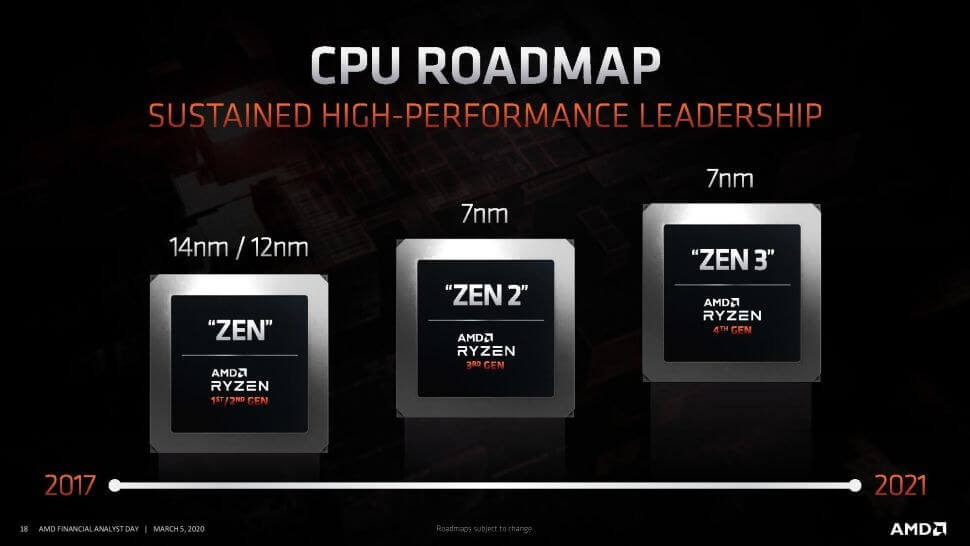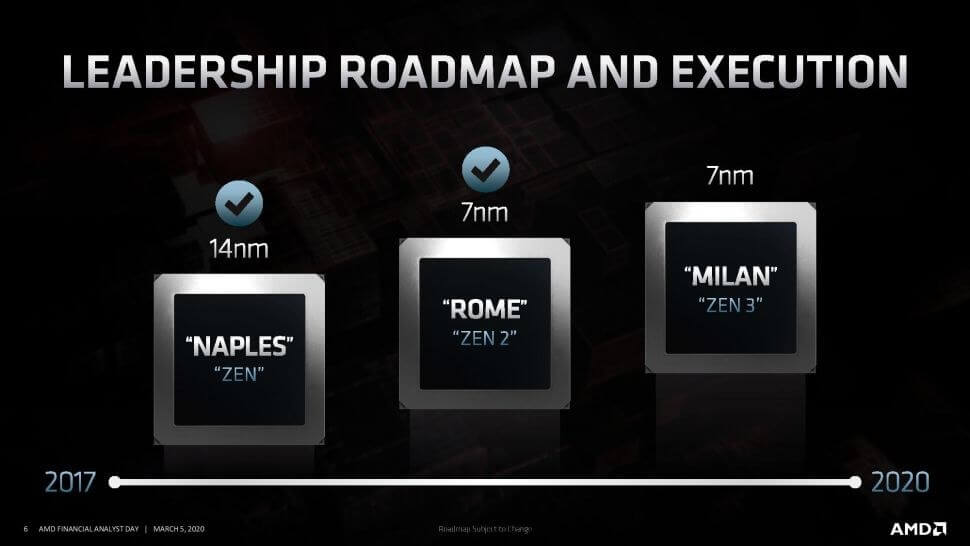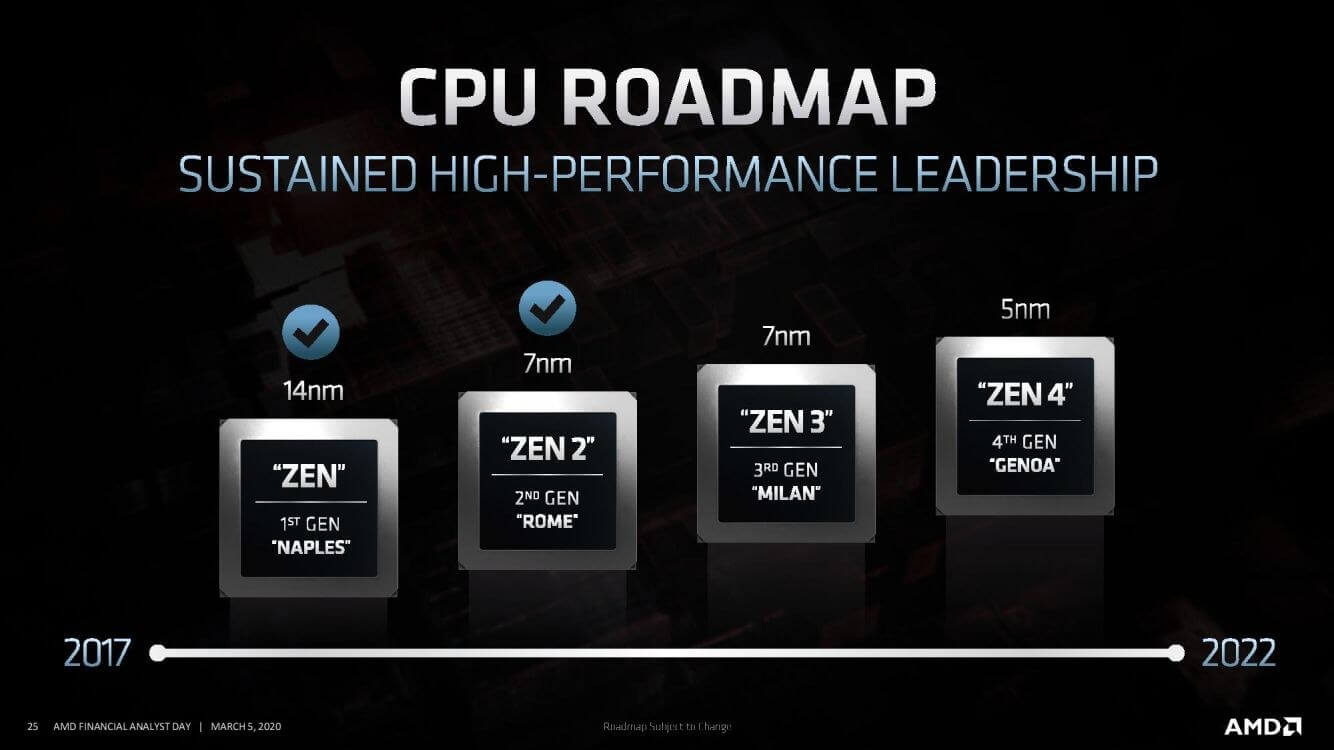Forward-looking: After years of living in its rival’s shadow, AMD has been challenging Intel in the CPU space since the arrival of its Zen architecture, and it looks like that trend is going to continue. Team Red has just revealed its latest processor roadmaps, showing the release of Zen 3 and the 5nm Zen 4 EPYC Genoa chips.

The consumer and enterprise CPU roadmaps were unveiled at AMD’s Financial Analyst Day. In the former category, the graph only goes as far as Zen 3. The fourth-generation Ryzen chips will arrive at the end of this year, but AMD says that the full range of consumer products, which includes desktop CPUs, should all be available by the end of 2021.

The enterprise product roadmap extends further into the future than the consumer version, a result of a longer product cycle and the financial investment long-term maps bring from customers. AMD also hinted that it didn’t want to reveal too much of its future plans for the competitive consumer CPU market.

AMD confirmed that EPYC Rome’s successor, EPYC Milan, will arrive late in 2020. The Zen 3-based CPUs will be built on the 7nm process, but it will be a more advanced version of the 7nm process AMD uses in its current products.
Looking further ahead, AMD revealed it would have its Zen 4 EPYC Genoa processors available by the end of 2022. These use the 5nm process node, which will likely also be used for the Zen 4-based consumer CPUs when they arrive.

With Intel’s upcoming Comet Lake desktop CPUs based on a refined version of the 14-nanometer process it’s been using since Skylake, Chipzilla is struggling to catch up with its rival, which is eroding Team Blue’s market share all the time.
https://www.techspot.com/news/84295-amd-cpu-roadmap-reveals-zen-3-zen-4.html